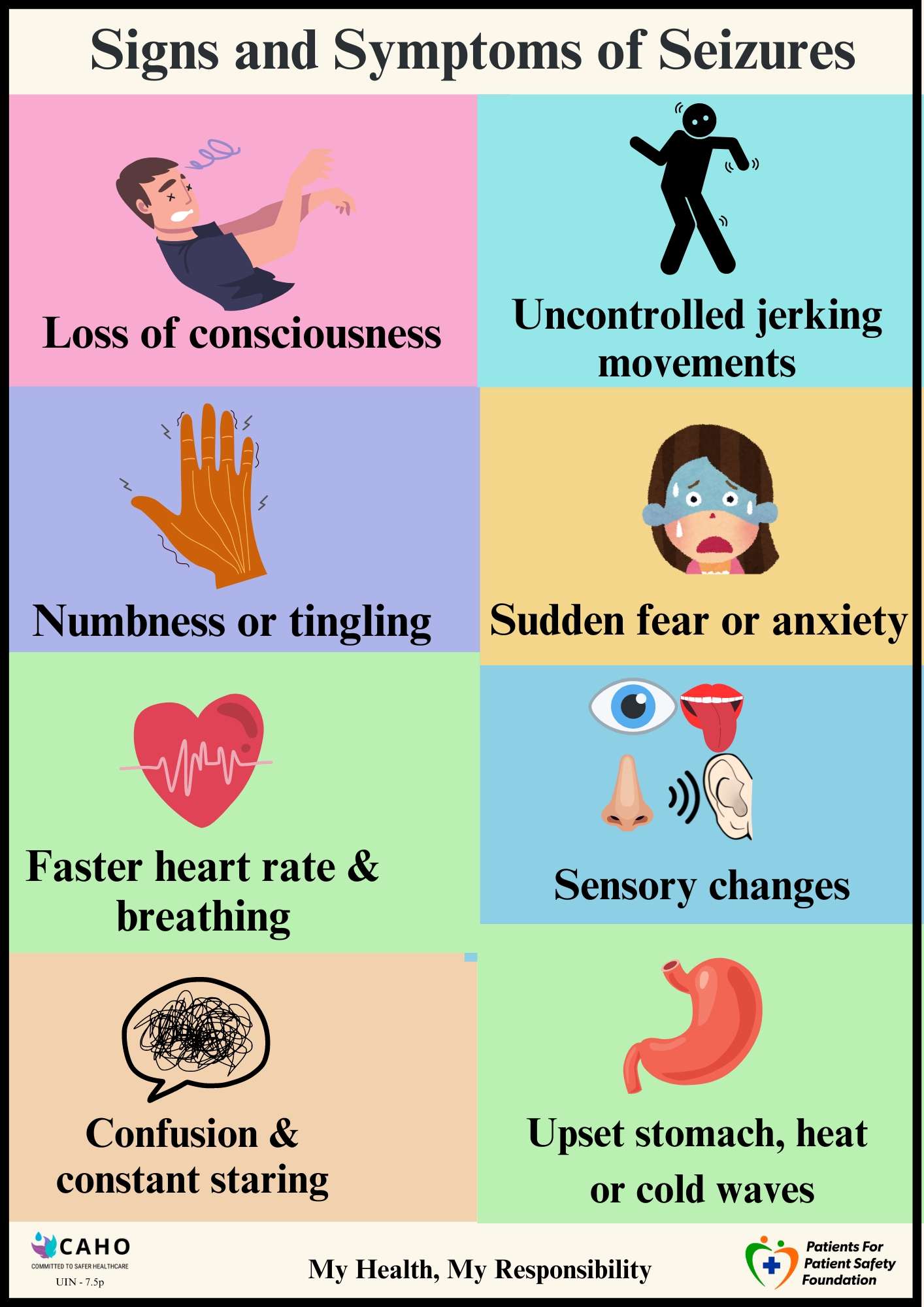
Seizures: How to Detect and Respond
What is it:
A seizure is a sudden, uncontrolled electrical disturbance in the brain that can cause changes in behaviour and movements. Seizures can manifest in various forms and may range from brief lapses to severe convulsions. These sudden onset episodes typically last from a few seconds to a couple of minutes. It results from factors like head injuries, infections or other illnesses. It is crucial to recognise and understand these manifestations, as it can be indicative of underlying medical conditions that may require prompt attention and care.

Signs and Symptoms of Seizures:
- Temporary confusion, constantly staring at a specific place
- Jerk movements of the arms and legs that cannot be controlled
- Changes in hearing, vision, taste, smell
- Feelings of numbness or tingling
- Loss of consciousness or awareness
- Upset stomach, waves of heat or cold, goosebumps.
- Faster heart rate and breathing
- Sudden feelings of fear and anxiety

What to do:
When someone is experiencing seizures while waiting for medical help:
- Remain calm to help keep the person around you calm as well.
- Move sharp or dangerous objects away to prevent injury. Create a safe space around the person to minimize the risk of harm.
- Protect the head: If the person is lying down, place something soft under their head to prevent injury.
- Monitor the person: Note the start and end time of the seizure. Do not hold the person down or try to stop their movements and ensure the person is breathing.
- Stay with them as they come out of the seizure and recover. People who have a seizure often feel confused or afraid as they wake up and return to normal. Help reassure and comfort them.
-
Seek medical help immediately if:
- The seizure lasts longer than five minutes
- Another seizure follows immediately
- The person is injured during the seizure
- The person has difficulty breathing or turns blue
What not to do:
- Do not hold the person down: Avoid restraining the person's movements. Allow the seizure to run its course.
- Do not panic: Stay composed. Panic can escalate the situation and make it more challenging to assist the person.
- Don't offer water or food to the person until they are fully alert.
Seizures can be alarming. knowing how to respond can make a significant difference. Your actions can help protect the individual from harm and ensure they receive the appropriate care.
 Back
Back